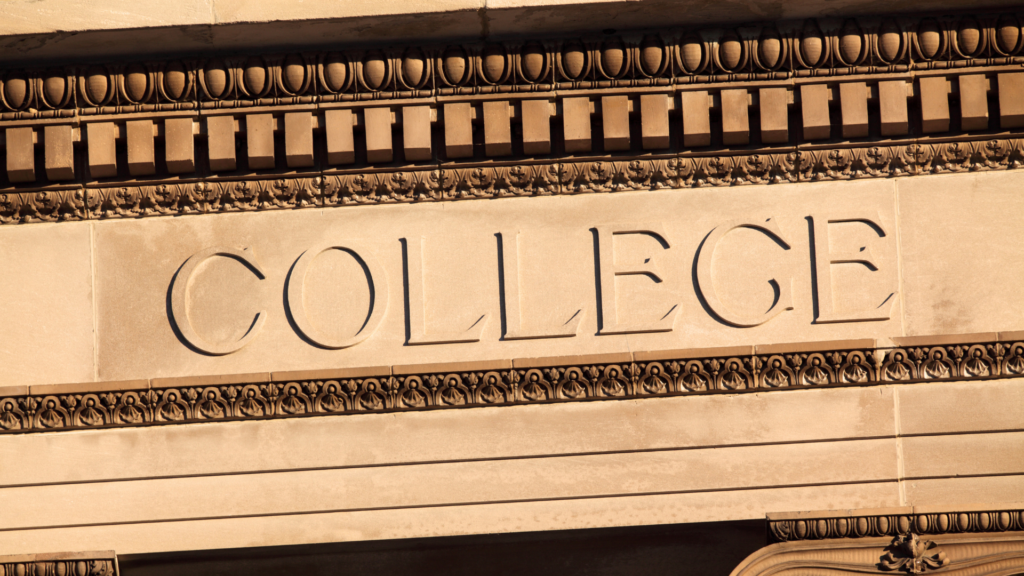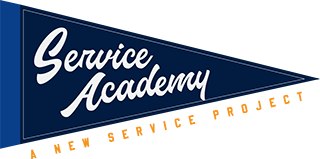
Making major life decisions is scary. The sheer volume of options—careers, classes, majors, minors, internships—is intimidating for even the most prepared, capable people. Each choice I make inherently starves other possibilities. The weight of this, when combined with the seeming permanence of these decisions and my uncertainty about what a career really means, becomes nauseating. No matter my choice, it feels like I might choose unwisely and regret my decision.
For weeks, I have been trying to answer a straightforward question: what should I study at the University of Miami? This question has required me to reflect on my academic journey and my early ideas about life and career after college, and how they’ve evolved.
My gap year provides the perfect space to consider these bigger questions. Away from academic pressures and engaging in activities focused on self-discovery, I can think more clearly about who I am and what I want.
But perhaps, I’m not thinking about this whole thing correctly.
Having options isn’t inherently scary—it should be freeing. My focus was on the long-term implications of these decisions, while I should have been finding ways to take the right next step.
Instead of choosing a pre-existing pathway, I want to chart one of my own, one with the highest likelihood of personal satisfaction— at each step and in the long run. This means being honest with myself about where I am right now, who I am today, and where I want to go, taking one step at a time, and being intentional about understanding how each choice contributes to both my present satisfaction and is a step forward in building the life I want to create.
While I am forging my own path, I am committed to accomplishing the things that I must do—the areas that I know I must study and work hard and engage in regardless of if it is what I “love” or even “like”. At the same time, I’m being honest with myself about the foundational benefits—and costs—of each choice.
I will build a life, career, and purpose exploring widely, throwing myself into my studies, diving deep into fulfilling friendships, and committing to reaching for what I want—not settling—no half-measures.
I need to get it through my head that going all-in on a college major isn’t wasted time just because it doesn’t stick forever. Making an intentional decision, committing and changing paths is growth that deserves celebrating, not regret. Each ‘wrong’ turn increases the chances of the ‘right’ one next.
If I choose each path thoughtfully and honestly, I’ll grow from it—it’s the growth, not the outcome, that really matters to me.
I know I cannot pinpoint a perfect career—there is no such thing. I’m not even sure if I can envision what I will be doing when I’m 40, but I can trust my core principles to guide me forward.
By focusing on what I know to be true about myself right now, these core principles are my ‘true north’, the lens through which I can take well-considered next steps. These principles have been developed and refined throughout my life and serve as my foundation for what is next while staying aligned with my values and strengths.
The six core principles that guide how I understand and engage with the world are:
Deep Problem Understanding
I like to break down problems into parts, separating root causes from symptoms and building back up. I like to explore the ‘why’ at each level. When someone asks me, ‘What couch do you like?’ I want to think, ‘What is a couch for?’
Collaborative Synthesis
I thrive in small group environments where I can explore and connect ideas. My strength lies in building on others’ thoughts—spotting new angles, drawing parallels across different disciplines, and helping refine existing concepts. My best work comes from this kind of active collaboration, where I can bounce ideas around and build on the group’s collective thinking.
Technical Mastery with Broad Vision
I want to be a credentialed specialist that tackles complex, multi-disciplinary challenges.
Purpose and Impact
I want to be part of something larger than myself, see myself contributing to the arc of history, making an impact and shaping the future by empowering myself and others.
I want to be known as a ‘good person,’ someone who spreads authentic positivity into the world connects people, builds a community, creates a family, and “fills my cup” so I can help fill others.
Complementary Modes of Understanding
I want to study and work at the intersections of the most interesting, impactful technical and creative fields. If I build a career in finance, I want to do it with the perspective and skills of a computer scientist, industrial designer, historian, and philosopher.
I believe in the power of approaching challenges from multiple angles. Technical analysis, creative thinking, and humanist understanding aren’t separate—they’re complementary approaches that, when combined, allow for deeper problem understanding and offer greater potential for effective engagement with large-scale challenges.
These principles guide me toward specific tools and approaches to my future:
Technical Foundation
I am drawn to Engineering and Computer Science because they develop and apply algorithmic thinking, breaking down challenges and developing systemic solutions. It’s a fundamental language of problem understanding and scalable change in our modern world.
I see Finance as a powerful way to understand how resources flow and can be leveraged for positive change.
I have valued my Economics studies for their ability to help me model and understand complex systems and human behavior.
Creative Application
I am drawn to Product Design because I enjoy working with my hands and engaging with nuanced user needs to create practical solutions.
I have always marveled at how Architecture both reflects and guides how physical spaces shape human experience and behavior.
Contextual Understanding
I’m drawn to History and Biographies because they reveal patterns of human success and failure through real stories of individual impact.
I am curious about how Philosophy helps me develop self-awareness, explore my purpose, and consider the implications of my choices.
I envision Psychology as a way to gain insight into human behavior and motivation.
Putting It All Together: Thoughts Into Action
So, after all this, what am I going to study at the University of Miami?
I’ll start by building my technical fundamentals—Engineering, Computer Science, Data Analysis, Statistics, and Finance. These are my top areas of interest and the essential tools for understanding and affecting change in today’s world. Even if some of these courses are challenging or I don’t “love” them, the skills I will learn are necessary for building my foundation.
I will complement those technical credentials with courses that develop my creative thinking and deeper understanding of the world. That means studying Design, History, Philosophy, and Psychology.
It means finding creative projects, including internships, where I can apply my technical skills to real human problems.
I’m pursuing my interest while developing versatile capabilities to serve me across different roles and challenges.
These principles will help guide my choices at Miami and beyond. My initial anxiety about a future career has been overcome by growing confidence in better knowing who I am, what matters to me, and how I work best to guide my next steps. I am excited about my path ahead.
The future is uncertain, as it always is. But I’m ready.
— Thomas Growney
About Our Gap Year Journey
We’re Ryan and Thomas Growney, twin brothers and co-founders of Service Academy.
After graduating from St. George’s School in Rhode Island, we’ve embarked on a gap year to explore how different cultures approach problem understanding, community engagement, service, and social innovation.
Our journey will take us to various countries, including South Africa, where we’ll participate in the Tilting Futures program, and the Himalayas, where we’ll be joining the NOLS for a high-altitude mountaineering challenge. Throughout this year, we aim to challenge our assumptions, broaden our perspectives, and gather insights that will help us enhance our approach to social impact back home.
Ryan is particularly interested in scaling service initiatives to develop young leaders, while Thomas focuses on the personal connections and community belonging that service creates. By sharing our experiences, we hope to contribute to a broader dialogue about service, mentorship, community engagement, and cross-cultural learning.
We invite you to follow along on our journey, engage with our reflections, and share your own insights about service in diverse contexts.
Together, we can work towards creating more meaningful and impactful youth service ecosystems that benefit both young people and their communities.
